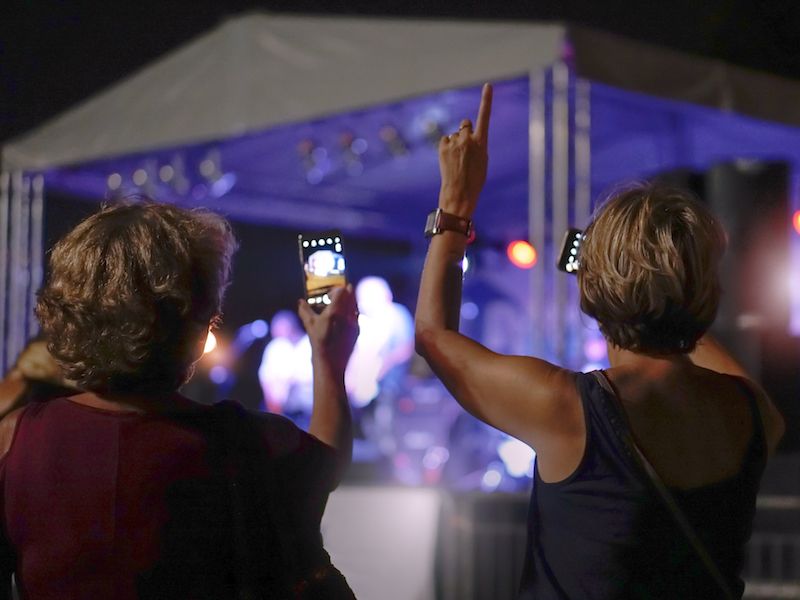
We’ve been looking forward to summer fun all year: swimming in the pool, visiting the beach, and other activities that might damage your hearing. You might find yourself in external situations or exposed to other loud noises this summer that are hidden dangers to your hearing. Any noises above 80 decibels could damage your hearing, while lasting loss of hearing can happen in pools or other bodies of water. You need to take precautions and be conscious of your environment in order to protect your hearing this summer season. Keep reading to identify the summer’s 6 hidden risks to your hearing.
Wear Hearing Protection at Concerts
Whether you’re at an indoor arena or an outside show venue you still need to wear hearing protection during live music. 90 decibels is inside the danger zone for hearing damage and live music reaches this level even at outdoor shows. That’s the reason it’s definitely a smart plan to use earplugs whether you’re going to a concert outdoors or indoors. You can still hear the tunes with earplugs it’s just dampened a little bit. If you’re going to a concert with young kids, think about buying them a heavy duty pair of earmuffs because children have more vulnerable hearing than adults.
Fireworks Are More Than Just Loud
Honestly, there are a lot of reasons to avoid fireworks in the summer. This is not about the professional 4th of July fireworks show, we mean the backyard fireworks which every summer season cause hundreds of injuries. Home fireworks get to volume levels of over 155 which can injure your ears as well as causing hand problems, loss of vision and home fires. This year, on the 4th of July, enjoy the show from a distance and leave the fireworks to the professionals.
Loss of Hearing Can be Caused by Lawnmowers
If you love to take care of your lawn, mower, edger, and trimer are your best friends. But have you ever noted how off your ears feel after you get done, making everything sound muffled? That’s because the constant noise from your lawn tools have a slow and steady impact on your hearing. If you’ve ever noticed lawn care pro’s, it is likely you have noticed them using ear protection, next time you work on your yard with noisy power equipment, you need to take a hint from them and wear earmuffs or earplugs.
Here’s How to Protect Your Hearing When You go Swimming
Millions of people suffer from swimmer’s ear each summer, which occurs when the ear canal traps water which has to much bacteria. The bacteria will then infect the ear, leading to swelling and painful earaches. It’s not just lakes and rivers that contain these bacteria, they can also be found in hot tubs and pools if they are not cleaned and treated thoroughly. No lasting injury should occur if you get your ears checked out by a hearing professional. To counter swimmer’s ear, though, you should wear special swimming earplugs in the pool and have your pool water tested to be sure the chemical balance is ok.
Boats and Other Water Sports
The summer season is a breath of freedom for the people who love to be in a boat on the water, smelling the salt air from the ocean or the fresh breeze from the lake. But, boat and jet ski engines can be noisy,we’re talking over 100 decibels. Irreversible hearing impairment can be the result after only 15 minutes of exposure to that kind of noise. In this situation also, using a pair of throw away foam earplugs is a smart plan.
Car Races Can Injure Your Hearing
It doesn’t make a difference what kind of auto racing you love, motorcycle, midget, Formula 1, drag racing or stock cars. If you go to many auto-races this year, they all pose a risk. 120 dB is well within the danger zone for hearing damage and many races go way above this. As mentioned before, your kids should wear muffs while you should use earplugs at least. Because you might not get to enjoy the sounds of any races in the future if you don’t.
